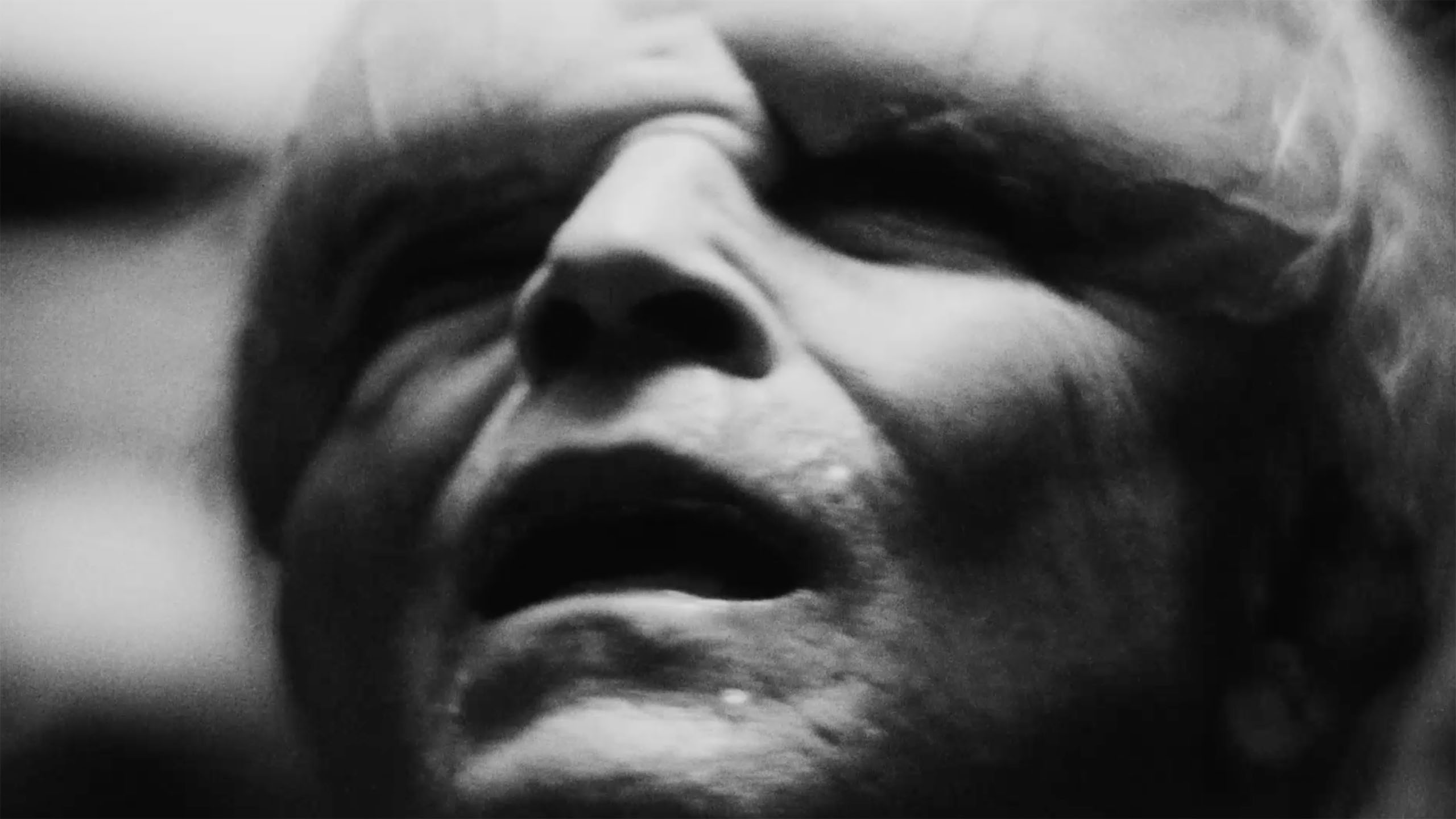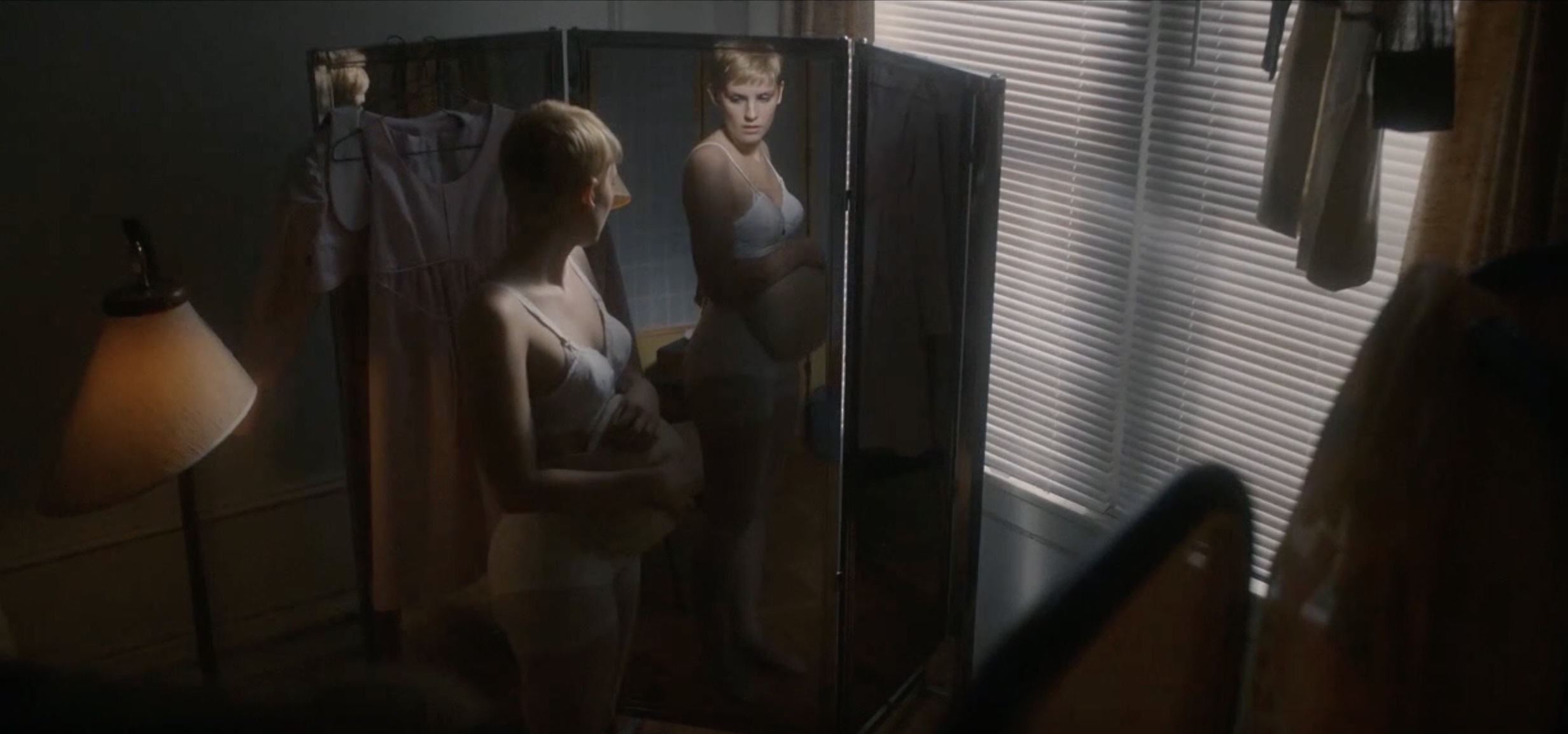Reviews
‘Divinity’ Sundance Review – A Stunningly Original, Weird-as-Hell Sci-fi Trip

Out of all the programming categories at Sundance, it’s NEXT that proves to be the most divisive. Saved for “pure, bold works distinguished by an innovative, forward-thinking approach to storytelling,” it’s essentially the home of arthouse cinema. So it should come as no surprise that Eddie Alcazar‘s weird-as-hell Divinity, which just had its world premiere at the festival, falls right into that category.
Set in an alternate universe (or a near future?), Divinity sees scientist Sterling Pierce (Scott Bakula, Quantum Leap) dedicate his life to the quest for immortality, slowly creating the building blocks of a groundbreaking serum named Divinity. Years later, his son Jaxxon Pierce (Stephen Dorff, Blade) now controls and manufactures the drug, resulting in a hedonistic planet that has been left 97% infertile, but immortal. Two alien brothers (Moises Arias and Jason Genao) arrive with a plan to abduct the mogul, only to be surprised by the sudden arrival of a sex worker named Nikita (Karrueche Tran, TNT’s Claws), who complicates their plans. Meanwhile, in another universe (or planet?) a female race led by Ziva (Bella Thorne, The Babysitter films) aims to undo the destruction caused by Divinity.
Divinity is fucking weird. There’s no way around it. Though it has a more linear narrative than your typical experimental film, its black-and-white, 16mm-shot assault on the senses is bound to divide viewers. Writer/director Eddie Alcazar, returning to the screen for the first time since 2018’s Perfect, gives us a unique vision that doesn’t offer much handholding for viewers. It’s best to just sit back and enjoy(?) the ride.
Though it’s aesthetically reminiscent of the lo-fi production of sci-fi television shows from the ’60s, the themes that Divinity grapples with apply to our modern world. Keying into society’s penchant for selfishness and self-preservation, especially in these post-pandemic times, Alcazar has more on his mind than a silly little sci-fi adventure.

Dorff may get top billing, but he does end up buried under a great deal of makeup for most of the film’s runtime, so the emotional core falls on Tran, Arias and Genao. Tran, especially, gives a mesmerizing and ethereal performance. It is through Nikita that the alien siblings gain a semblance of humanity, learning to understand what it means to be human and the detrimental effects Divinity has had on the race.
The worldbuilding is exquisite, so it’s no wonder that an industry titan like Steven Soderbergh opted to produce the film. Divinity is a vibe, but what the film lacks in commercial appeal it more than makes up for in a seemingly unending supply of creativity. Makeup effects on a continuously transforming Dorff impress, and a climactic battle filmed in stop motion dazzles. Jacob Flack and Mark A. Mangini‘s sound design is impeccable, adding an even more ominous layer to the proceedings.
As abstract as Divinity can be, it sometimes doesn’t trust its audience to fully understand what it’s trying to say, with Nikita even vocalizing the film’s central message about midway through the film. It offers little handholding for viewers, but when it does it pulls you out of the film. These moments are few and far between, but because of that it makes the moments that they do occur feel even more jarring.
Expect Divinity to perplex more viewers than it doesn’t (cries of “pretentious bullshit” will be inevitable), but for those that can appreciate the sheer ambition of the film’s scope, there’s a treat to be found within. Immortality is a constant talking point in the film, but what does that really mean? Is it merely that one body lives forever? Or is it something more than that? For those willing to meet Divinity halfway, they may find the answer.
Divinity had its world premiere at the 2023 Sundance Film Festival and is currently seeking a distributor.


Reviews
“AHS: Delicate” Review – “Little Gold Man” Mixes Oscar Fever & Baby Fever into the Perfect Product

‘AHS: Delicate’ enters early labor with a fun, frenzied episode that finds the perfect tone and goes for broke as its water breaks.
“I’ll figure it out. Women always do.”
American Horror Story is no stranger to remixing real-life history with ludicrous, heightened Murphy-isms, whether it’s AHS: 1984’s incorporation of Richard Ramirez, AHS: Cult’s use of Valerie Solanas, or AHS: Coven’s prominent role for the Axeman of New Orleans. Accordingly, it’s very much par for the course for AHS: Delicate to riff on other pop culture touchstones and infinitely warp them to its wicked whims. That being said, it takes real guts to do a postmodern feminist version of Rosemary’s Baby and then actually put Mia Farrow – while she’s filming Rosemary’s Baby, no less – into the narrative. This is the type of gonzo bullshit that I want out of American Horror Story! Sharon Tate even shows up for a minute because why the hell not? Make no mistake, this is completely absurd, but the right kind of campy absurdity that’s consistently been in American Horror Story’s wheelhouse since its inception. It’s a wild introduction that sets up an Oscar-centric AHS: Delicate episode for success. “Little Gold Man” is a chaotic episode that’s worth its weight in gold and starts to bring this contentious season home.
It’d be one thing if “Little Gold Man” just featured a brief detour to 1967 so that this season of pregnancy horror could cross off Rosemary’s Baby from its checklist. AHS: Delicate gets more ambitious with its revisionist history and goes so far as to say that Mia Farrow and Anna Victoria Alcott are similarly plagued. “Little Gold Man” intentionally gives Frank Sinatra dialogue that’s basically verbatim from Dex Harding Sr., which indicates that this demonic curse has been ruffling Hollywood’s feathers for the better part of a century. Anna Victoria Alcott’s Oscar-nominated feature film, The Auteur, is evidently no different than Rosemary’s Baby. It’s merely Satanic forces’ latest attempt to cultivate the “perfect product.” “Little Gold Man” even implies that the only reason that Mia Farrow didn’t go on to make waves at the 1969 Academy Awards and ends up with her twisted lot in life is because she couldn’t properly commit to Siobhan’s scheme, unlike Anna.
This is easily one of American Horror Story’s more ridiculous cold opens, but there’s a lot of love for the horror genre and Hollywood that pumps through its veins. If Hollywood needs to be a part of AHS: Delicate’s story then this is actually the perfect connective tissue. On that note, Claire DeJean plays Sharon Tate in “Little Gold Man” and does fine work with the brief scene. However, it would have been a nice, subtle nod of continuity if AHS: Delicate brought back Rachel Roberts who previously portrayed Tate in AHS: Cult. “Little Gold Man” still makes its point and to echo a famous line from Jennifer Lynch’s father’s television masterpiece: “It is happening again.”
“Little Gold Man” is rich in sequences where Anna just rides the waves of success and enjoys her blossoming fame. She feels empowered and begins to finally take control of her life, rather than let it push her around and get under her skin like a gestating fetus. Anna’s success coincides with a colossal exposition dump from Tavi Gevinson’s Cora, a character who’s been absent for so long that we were all seemingly meant to forget that she was ever someone who was supposed to be significant. Cora has apparently been the one pulling many of Anna’s strings all along as she goes Single White Female, rather than Anna having a case of Repulsion. It’s an explanation that oddly works and feeds into the episode’s more general message of dreams becoming nightmares. Cora continuing to stay aligned with Dr. Hill because she has student loans is also somehow, tragically the perfect explanation for her abhorrent behavior. It’s not the most outlandish series of events in an episode that also briefly gives Anna alligator legs and makes Emma Roberts and Kim Kardashian kiss.

“Little Gold Man” often feels like it hits the fast-forward button as it delivers more answers, much in the same vein as last week’s “Ava Hestia.” These episodes are two sides of the same coin and it’s surely no coincidence that they’re both directed by Jennifer Lynch. This season has benefitted from being entirely written by Halley Feiffer – a first for the series – but it’s unfortunate that Lynch couldn’t direct every episode of AHS: Delicate instead of just four out of nine entries. That’s not to say that a version of this season that was unilaterally directed by Lynch would have been without its issues. However, it’s likely that there’d be a better sense of synergy across the season with fewer redundancies. She’s responsible for the best episodes of AHS: Delicate and it’s a disappointment that she won’t be the one who closes the season out in next week’s finale.
To this point, “Little Gold Man” utilizes immaculate pacing that helps this episode breeze by. Anna’s Oscar nomination and the awards ceremony are in the same episode, whereas it feels like “Part 1” of the season would have spaced these events out over four or five episodes. This frenzied tempo works in “Little Gold Man’s” favor as AHS: Delicate speed-runs to its finish instead of getting lost in laborious plotting and unnecessary storytelling. This is how the entire season should have been. Although it’s also worth pointing out that this is by far the shortest episode of American Horror Story to date at only 34 minutes. It’s a shame that the season’s strongest entries have also been the ones with the least amount of content. There could have been a whole other act to “Little Gold Man,” or at the least, a substantially longer cold open that got more out of its Mia Farrow mayhem.
“Little Gold Man” is an American Horror Story episode that does everything right, but is still forced to contend with three-quarters of a subpar season. “Part 2” of AHS: Delicate actually helps the season’s first five episodes shine brighter in retrospect and this will definitely be a season that benefits from one long binge that doesn’t have a six-month break in the middle. Unfortunately, anyone who’s already watched it once will likely not feel compelled to experience these labor pains a second time over. With one episode to go and Anna’s potential demon offspring ready to greet the world, AHS: Delicate is poised to deliver one hell of a finale.
Although, to paraphrase Frank Sinatra, “How do you expect to be a good conclusion if this is what you’re chasing?”















You must be logged in to post a comment.